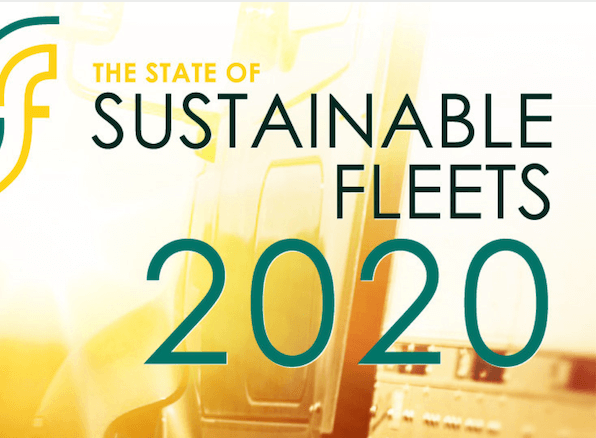Clean technology consulting firm and producers of the annual Advanced Clean Transportation (ACT) Expo, Gladstein, Neandross & Associates (GNA) has authored and launched the first comprehensive, technology-neutral industry report that examines the current state of prevalent sustainable vehicle platforms for medium- and heavy-duty fleets and identifies the trends shaping the future of the industry.
Produced with support from the report’s title sponsors Daimler Trucks North America (DTNA), Penske Transportation Solutions, Shell Oil Company and supporting sponsor Exelon Corp. the report offers insights into the current and future adoption of four sustainable fuel and vehicle technologies: natural gas vehicles (NGVs), propane (LPG) vehicles, battery electric vehicles (BEVs) and hydrogen fuel cell electric vehicles (FCEVs).
As fleets adopt these technologies, they are inevitably compared to baseline diesel and gasoline vehicles, which have historically – and will continue to – dominate the commercial fleet market. This report also summarizes sustainability trends in these baseline technologies that serve as a benchmark for emerging alternative fuel vehicles and advanced technologies.
The debut report finds that while diesel and gasoline vehicles have led the medium- and heavy-duty fleet markets in terms of vehicle and fuel sales for decades, fleets are now testing and purchasing sustainable vehicle technologies in record numbers. The authors note the industry is experiencing a critical inflection point where alternative fuel vehicle adoption is expanding from the gradual uptake in niche applications seen over the past several decades, to faster and broader adoption within the last few years, supported by four key findings:
- Across a broad spectrum of fleets surveyed, approximately 98% expect to increase or continue the same level of use of sustainable vehicle technologies and fuels
- Natural gas, propane, battery electric and hydrogen fuel cell electric vehicles, the four sustainable vehicle technology platforms covered in the study, are all growing in terms of vehicle sales, fuel sales and investment
- Sustainability is the top motivator for purchasing decisions among early adopter public, private and even for-hire fleets in deploying clean vehicle technologies. Many U.S. fleets are now transitioning to clean vehicle technologies not just to reduce total cost of ownership but to meet sustainability objectives
- Fleets confirm there is no material performance loss when switching to most renewable fuels – renewable diesel, natural gas and electricity – and would use more when it is a cost-neutral, drop-in replacement
“We applaud the research effort and insights presented by the inaugural State of Sustainable Fleets report,” says Richard Howard, senior vice president of on-highway sales and marketing for DTNA.
“Our vision for a future of C02-neutral commercial transportation can only be realized by the collaboration between manufacturers and fleets to ensure we are delivering solutions to meet their needs. We are pursuing clean technologies of the future, and we will arrive to that future together as an industry who keeps the world moving,” he adds.
To read the GNA’s full The State of Sustainable Fleets 2020 report, click here.







